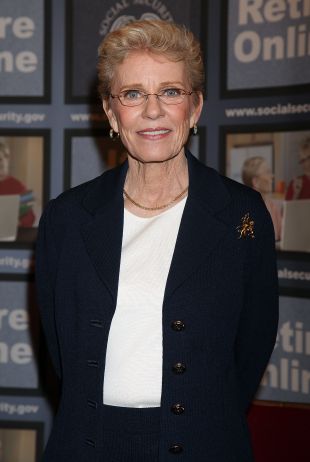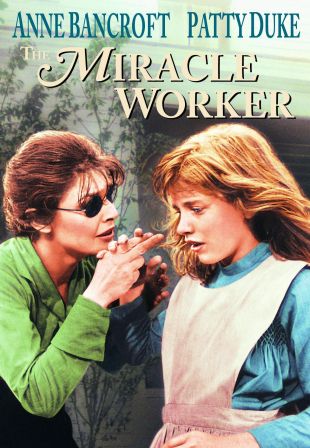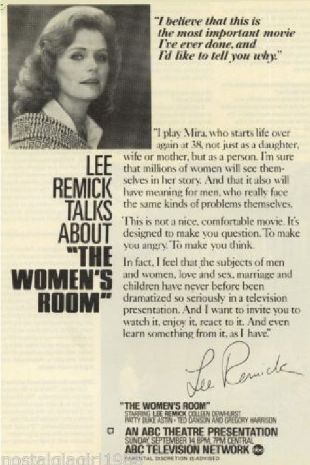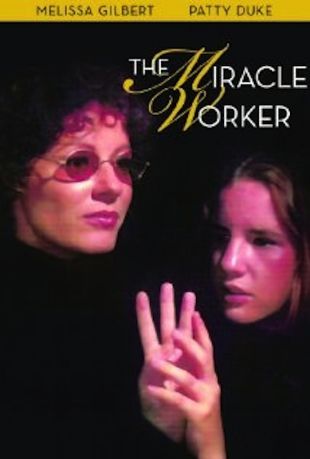American actress Patty Duke (born December 14, 1946) was groomed almost from infancy for a starring career by her manager/guardian John Ross. She studied at the Quintano School for Young Professionals and earned her Equity card at age seven, appearing in numerous TV productions and in such Hollywood films as I'll Cry Tomorrow (1955), The Goddess (1958) (playing young Kim Stanley, the "Marilyn Monroe" character in that film), and Happy Anniversary (1959). Duke also appeared as a quiz-show contestant, and was later compelled to testify as to her honesty during the cheating scandals of 1958 and 1959. Just before her 13th birthday, Duke made her stage debut in the role of Helen Keller in The Miracle Worker; the production won the girl instant stardom and later an Academy Award for the film version of Miracle Worker (1962).
Manager John Ross very carefully monitored Duke's public appearances, making certain the world saw her as a sweet, uncomplicated young lady. The truth was that Duke was terribly unhappy, feeling pressured into performing and into suppressing her own emotions. That's not what the world saw in the three seasons of The Patty Duke Show (1963-1966), a sitcom wherein the young actress literally talked to herself in the dual role of cousins Patty and Cathy Lane. She became cynical with stardom in a hurry, and in a bold act of defiance, 18-year-old Duke married a man twice her age, director Harry Falk Jr. Her first grown-up role as a Judy Garland type in Valley of the Dolls (1967) was panned, and it was suggested that she'd lost her talent. The next few years she was cast in a series of unsuccessful films but made a strong comeback with the 1969 TV movie My Sweet Charlie, which won her the first of three Emmys; the others being for the miniseries Captains and the Kings(1976) and a remake of The Miracle Worker (1979) in which she played the role of Annie Sullivan, co-starring with Melissa Gilbert as Helen Keller.
In 1972 she married actor John Astin. He raised her son, Sean Astin (actually the biological son of music promoter Michael Tell), as his own; they had Mackenzie Astin together. Duke also briefly changed her professional name to Patty Duke Astin. The Astins worked together prolifically for the duration of their marriage (which eventually ended in divorce). Building up her self-confidence and completely rebuilding her reputation in the '80s, Patty Duke served from 1985 through 1988 as president of the Screen Actor's Guild (the second woman to do so), starred in three separate network sitcoms, and wrote her harrowing best-selling memoirs, Call Me Anna, which in 1990 was adapted into a TV movie that she co-produced and starred in.
In 2002, Duke returned to the stage to play Aunt Eller in a production of Oklahoma!, and appeared as a guest on The Oprah Winfrey Show in 2007 to discuss living with bipolar disorder. The actress replaced Carol Cane as Madame Morrible in the San Francisco production of Wicked in 2009, and joined the cast of The Protector (a short-lived drama from Lifetime) in 2011. Her final role was in a 2015 episode of the Disney channel show Liv and Maddie, fittingly playing a set of identical twins. Duke died in 2016, at age 69.



